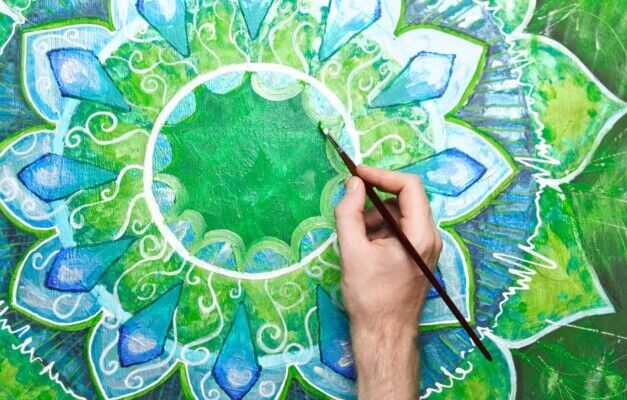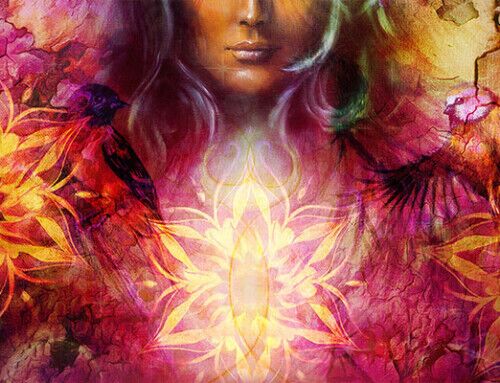
Unlocking your creativity can be both magically transforming, and yet supremely practical. How much better off would we be if government were more creative in dealing with the issues it faces? The benefit of creativity for religious institutions might result in a more personal connection with God for their congregations. In terms of health care and public education, there would be more of an opportunity for an opening in creative collaboration with those whom they serve.
Creativity, if given the high social value that it deserves, could provide the following: The individual, who is the catalyst for and the force of all change and creativity, would benefit immensely because he or she would be both the active protagonist and the active beneficiary of such creative change. Personal happiness would increase because individuals would find value and importance in creating solutions that would benefit themselves and others. Society would improve because of the active interest and stake in making these solutions work practically. Society would improve because its service would now be [once again] directly linked to preserving the individual. The individual would improve because he/she was now the benefit of society.
But what is creativity? Though it has been studied, analyzed, dissected, discussed and documented as if it were a tangible thing, we have no generally accepted definition of creativity—no agreement on precisely what it is. The dictionary defines creativity as “the ability to create.” We tend to immediately link creativity to the arts, and perhaps in our current mindset it is most apparent there because that is where it fits most precisely with our hazy definition of it. “The ability to create?” To create what? Things that didn’t exist before, or didn’t exist the same way before they were created. They are the invisible, intangible things of thought until they are actually created. And that, for the most part, dwells comfortably within our culture and society as “art,” mostly because of our cultural ignorance of art. The cultures of Europe and Asia infuse an appreciation of art into their everyday lives; artists are looked upon much as craftsmen, skilled and filling a place in society. The place that art and the artist has occupied in our Anglo‐Western society has been an unsettled one. Art can be considered as a frivolity, an amusement for the rich, and an impractical, sometimes even immoral, profession. We have for the most part ignorantly consigned “art” to the realm of the unknowable. And in the realm of the “unknowable” resides creativity.
Creativity and innovation lie at the heart of our humanity. We prize creativity because, in a sense, civilization has created itself and continues to create itself. Yet, a certain carelessness exists in regard to our cultivation of creativity. Though we prize it and recognize its great merit, we also casually disregard the cultivation of it in everyday life. However, it is actually the freedom to be creative that enriches and gives meaning to an existence that is otherwise merely a tracking of scheduled activity within non‐creative boundaries.
Ultimately, the goal of unlocking creativity in ourselves is for us to break through our personal and societal barriers. Each of us, as a specifically attuned instrument, will respond better or more readily to a particular approach. In this respect, a particular key sentiment or structure may resonate more strongly than another within us. As well, we need to have enough self‐awareness to know not only how well our natures are attuned to such specific approaches, but to also know our own strengths and weaknesses in terms of our intrinsic rebellion against a prescribed “formula” of activity in our lives, or our lazy acceptance of the status quo, even if it seems innocuous or justifiable. In fact, it is usually the very things that we casually accept in the day‐to‐day routines of our lives that provide the biggest opportunity for changing our thinking, and practicing that change. This self‐knowledge lends itself to developing our own “instinctive knowing” about where and how to begin, where and how to turn, what to unlock, and what to let go of what hinders our creative process.
The ultimate secret to unlocking creativity is this: take risks. Small risks, big risks, it doesn’t matter. Force yourself to do different things, and to do things differently. Write with your opposite hand, wear different shoes, let the server choose your course from the menu and don’t ask what it is. Shop at a different store for a change, and notice how you are suddenly alert when you don’t know exactly where everything is. Travel to a country where they don’t speak English. Try it all and keep trying. If you find yourself saying, “No” with some justification, then you’re on the wrong track and missing the point. You can’t get the best deal, keep to the comfort food, save money, get to work in the shortest amount of time, etc., if you want to experience change. You already know how to do all those things. If you want to learn to do something else, if you want to have a better relationship, more fun at work, a more vivid life, you’re going to have to create an adventure. Life is the ultimate creative act, so dive in!
Course Continued…
This is an excerpt from one of the 40 required bachelor’s courses offered in the University of Metaphysical Sciences metaphysical degree program.
The course Unlocking Creativity and Imagination is also available for individual purchase at our online store.
*Please note that courses purchased through metaphysicalsciencesstore.com are for personal interest only, and not as part of the degree program. If you are interested in pursuing your metaphysical degree, please fill out an enrollment form here.


Leave A Comment